Anne-Marie’s journey, a mother who lost her daughter to an ecstasy overdose
This blog was originally written by Núria Calzada and published in the magazine Cáñamo. The original can be read – in Spanish – here.
We spoke to Anne-Marie Cockburn just days after the anniversary of the death of her daughter Martha from an ecstasy overdose. She is one of the founders of Anyone’s Child, an organisation of people who have lost a family member and demand a change in drug policies.
In the early hours of July 20, 2013, Anne-Marie Cockburn received an unexpected call that would change the course of her life. Her fifteen-year-old daughter Martha was critically ill in hospital after taking MDMA. She died shortly after. Thus begins the journey of this mother from Oxford who, unafraid of making the political class uncomfortable, has become a tireless activist for drug policy reform in the United Kingdom, so that there are no more stories like Martha’s.
After the death of her daughter, Anne-Marie began writing 5,742 Days (the number of days Martha lived), a book that chronicles the first months of mourning in real time and that warms your heart on every page. She is co-author of What Martha Did Next (‘What Martha Did Next’, 2015) and one of the founders of Anyone’s Child, an organisation of people who have lost a family member and demand a change in drug policies. She speaks passionately and nostalgically about her involvement with The Forgiveness Project, a restorative justice program in which she visited prisons and shared her story with inmates.
Anne-Marie speaks calmly and exudes a special energy. We spoke with her a few days after the anniversary of the death of her “precious Martha”.
Let’s start with your personal story, who is Anne-Marie?
I was born in 1971 in Dundee, in the east of Scotland, although I grew up on the west coast in a very large family. I was the fourteenth of fifteen siblings. I wouldn’t recommend it, but the truth is that it gave me the ability to resist and move forward in the face of adversity, something that has been very useful to me in recent years. I moved to England 32 years ago, I had a relative in Oxford and I thought it was a good opportunity to start my life as a young adult. And I liked it so much that I’ve been here ever since. I didn’t go to university because I started working very young. But I’ve worked with lawyers and in academic settings, so I’d say I’ve had a good education throughout my career. Looking back, I think I should have studied English. If I were to start my life over again, I would certainly dedicate myself to writing.
You always mention that you are a single mother, although her father does appear at some point in the book. Were you a single mother from the beginning?
We separated when Martha was ten months old. So you could say that I was a single mother almost from the beginning. In the first months, her father was not very present and then he moved abroad, so they gradually lost contact. It is something that saddens him. He regrets not having spent more time with her, but he can no longer change her past. Martha looked a lot like her father. I have no regrets because I was always available. We travelled a lot, we went to Australia, to Bali, and Martha rode a camel and an elephant. She also travelled to Egypt. She had a very short but very happy life, and I am very glad that during the time she was here, I did everything possible to make sure that she had an exciting and fulfilling life. Although it was not always easy, she knew that I loved her and that she had many choices and opportunities, many more than I had. I have no regrets beyond the fact that at that time I didn’t know what harm reduction was, and hadn’t been trained to care for Martha in the way that she needed.
A love letter to Martha
In 2013, suddenly and without warning, you lose Martha to an MDMA overdose, and during the first few months you write a journal about the experience of grieving. How has writing helped you in the grieving process?
At the beginning my phone would not stop ringing, I had family around me and everyone was asking me questions, but I couldn’t communicate with anyone. I would speak online with friends, trying to gather as much information as quickly as possible, trying to get answers and documenting everything because I didn’t want to forget anything I might need later. So I started writing this journal about what I was experiencing and what I was feeling on that journey of letting go of Martha. And that was how I communicated with those close to me. In fact, many told me that they woke up each day wanting to read what I had written. So over time I began to think maybe it could be turned into a book. Writing helped me because it gave me purpose and helped me get out of my body. It’s like a love letter to Martha and mourning her loss. In fact, I’m really glad I did it because it was a very healthy way to spend those first few months and the first Christmas. Also, sometimes, if I am preparing a speech, I consult it and I am surprised to read things that I no longer remember. So it serves as a memory, but it is also like an introduction to me and my story that helps to open doors or helps other families in the similar situation.
In 5,742 Days you explain that you were aware of the fact that Martha had already had some contact with drugs and that you had talked about it.
It wasn’t really a conversation. It was me waiting for her to deny it. I said, “Martha, do you know what’s going on? Because I do”. She didn’t deny it and I was shocked. I didn’t expect her to tell me the truth. And I said something stupid like: “but why do you do it?, how is it possible?; When I was pregnant with you, I swam every day and ate organic food. I said very conventional things to her for a very unconventional teenager. And I yelled at her because I was so scared of the truth. I guess I behaved this way because the idea of just talking to your daughter about something that could cause her harm was very counterintuitive as a mother. But now I know that that is what Martha needed. In fact, after her death, I found out that she had been looking at The Lancet about how to take ecstasy safely. Martha was a very well informed girl and she knew how to find good sources of information.
Given your experience, what would you recommend to other families?
I would say that when your teenagers are rebelling and are not easy to be around – try to emotionally engage with them, sit in the uncomfortable atmosphere, love them more then as they don’t even like themselves at that stage in their development. Make an effort to listen to them and make them feel that they are heard. It doesn’t matter if it’s in the car, on a trip where you don’t have to look at each other, let them choose the music and enjoy it together. I’d tell them to try to speak about their feelings: “I want you to have a good life and be happy”, “I am your mother and I care about you, like any mother”… Above all, don’t forget to ask them: “what’s it like to be you? I never asked Martha that question. It is about maintaining an open dialogue and love, without judgement. A dialogue in which you can express your concerns, but also your willingness to be there for them, so that they know that you’ve got their backs. They can call you at any time of the day or night. A dialogue in which they are provided with the harm reduction information they need. Key information such as do not drink excess water, do not double the dose, do not mix alcohol with other drugs and always do it with someone you trust around you. Also legal information, such as the fact that they cannot arrest you for being with someone who has taken drugs, they cannot fine you for having used drugs, but they can for carrying them on you. You have to tune in to your feelings and realise that if they are going to do it and you can’t talk them out of it, there is basic information they need to know. The Loop launched the “Crush Dab Wait” campaign in 2015 to raise awareness about the dosing of high-purity MDMA crystals that were in circulation at the time. And this is what happened to Martha: she took a ‘bomb’, believing that because she had had a good time the first few times, she would have a better time with a little more. She did not know that it was so strong, it was 91% pure.
What you found in Martha’s school bag is very revealing about the stage she was at in her life.
The police returned Martha’s school bag to me, and inside was an empty pack of cigarettes and a book about baby animals. And looking at both things I thought: “Wow, here is a teenager”. At that age they think they are adults, but they are still young and they need us, I would say, at that stage of their lives, more than ever. And they’re not always great company at that age. It usually creates an uncomfortable atmosphere in which they want to get away and it is difficult to be around them. Many parents end up saying: “Okay, forget it, it’s fine, go and do what you want.” But looking back, I feel like they need you more than ever. They need you to sit with them in that uncomfortable atmosphere, they need love and support because, often they don’t even like themselves at that stage. They are dealing with so many things, biologically and in society, trying to fit in social groups and pass exams. We ask them big questions like: what do you want to do with your life? And there is also a lot of external toxic stuff, like social media. In fact, it is necessary to teach young people to form their own opinion of themselves, not based on what other people think, but from their own perspective.
Activism and Restorative Justice
You don’t explain it in the book, but I would like to know at what point you decide to become an activist for drug policy reform.
I remember it perfectly. It was six weeks later, on September 5, the day before the funeral. I was looking for information on drug policy and found Transform Drug Policy Foundation.I took a screenshot with their contact information and a few days later I contacted them. I was hungry for knowledge and so began a journey that took me to Parliament and the House of Lords, travelling the world and meeting all kinds of people. I have also had many phone conversations and have read as many books as I could on the subject to form an opinion. Nine years later, I know a lot more than I did then, but there is still a lot I don’t know, and I don’t think I should know everything either. It’s not my role. I am a grieving mother trying to be a part of this debate. I don’t have to be an expert in drug policy, although I have learned a lot; I just want to be a normal person in debates. Last weekend I was at the Womad Festival, where I talked about Martha and said that, if she could have taken something labelled with clear ingredients and recommended dosage, she would not have taken an amount equivalent for five people. My speech is very simple. There are other people in charge of drug policy who can bore you with statistics, but it’s not my role. I do mention data such as, for example, that in Portugal there are 10 overdose deaths per million inhabitants, 70 in the United Kingdom and 252 in Scotland. And I tell them that, although we do not have all the answers, we know that in Portugal they are doing something better than us.
In 2014, together with other families, you founded Anyone’s Child.
When I contacted Transform and other families, we had a lot of conversations about what could be done and the need to show human stories. These were conversations that ended up shaping what was ultimately established as Anyone’s Child. In October 2014, taking advantage of the date of what would be Martha’s seventeenth birthday, we took a petition to Downing Street to have the first debate on drugs in the UK Parliament. At that time we were just a few families. Today, Anyone’s Child is an international network.
This really caught my attention, because the tendency, as in the famous case of Leah Betts, is to reinforce the idea that drugs are bad and are to blame for these deaths. However, the Anyone’s Child families go much further and point to the root of the problem in drug policy. How can we promote this reflection in other families?
To all the families who have lost a loved one to drugs, I would say that the current framework of prohibition has not served to protect them. You don’t need to do a lot of research to know the history and understand that all this is really about is persecuting certain groups of society under the banner of prohibition. Look at what happened with the “dry law” in the United States: turf wars, Al Capone, cartels… The same thing is happening now. It is about not getting carried away by emotions but channelling them intelligently and looking for evidence. Fifty-one years have passed since the Misuse of Drugs Act and, since then, has it achieved what it was established to do? Has it reduced drug use? Has it made our society safer? No, rather the opposite. You cannot continue with the same strategy looking for different results. We need to put other approaches in place to reduce deaths and learn about issues like why people wish to take drugs or why the UK is a self-medicating and excessive drinking society. And look at what is happening in other countries. It is crazy that Malta, a Catholic country, is going to legalise cannabis. Incredible! It’s about following the evidence. This is what the Anyone’s Child families have done. The Leah Betts story was very sad. Her father was told of what I was campaigning to do and he said I wish her luck, but that he was disillusioned with the government at that point. It would have been awesome if he supported a more progressive approach, but when you talk to most cops you realize they’re stuck in that narrative like they’ve been brainwashed.
No one would think of going to look for the bartender in the event of an alcohol-related death, yet, every time there is a death related to ecstasy, the dealer is blamed as being responsible. Another exceptional event that captivated me was your reaction to the young man who gave Martha the ecstasy. Unlike most cases, when people want someone to blame and for there to be some sort of revenge. What led you to make that decision, even against the wish of some members of your family?
It was not premeditated. During the eight months leading up to the trial, no one ever asked me what I wanted to do. So I was waiting for that moment. And the first time someone asked me what I wanted as a sentence, it was like I had an out-of-body experience and someone else spoke through me saying that I wanted to meet him, that I didn’t want him to go to jail, and that I would like to work with him. So we did restorative justice together for a year and a half. He was seventeen years old. If it hadn’t been him, Martha would have gotten it from someone else. I know he didn’t do it with the intent to kill Martha. What he did led to her death, but I don’t hold him responsible. The responsibility lies with the government and its drug policy.
Another of Martha’s important legacies is your activism in prisons through The Forgiveness Project, a restorative justice project, where you assist and speak to people deprived of their liberty, some for drug trafficking. What are these meetings like? What reaction do they have to your story?
Oh my gosh I love it! Three years ago I spent about sixty days in total in prison. We went in with a group of two or three people and spent four days doing a workshop. We would leave at night and sleep in the hotel. Although we don’t sleep in prison, it is a very intensive program in which people are treated with love. We do not ask them what they have done, they can tell us if they want, but it is not part of the program. I begin by telling the story of my life, in which I have experienced many difficulties, even before Martha died. There is always some element they connect with and makes them interested in you. At the end of the session, I take out Martha’s shoes and tell them that she died of an ecstasy overdose. It creates an atmosphere of absolute silence, you can see their horrified faces and that precise moment when they understand why they are in this workshop. What happens next? They ask questions, we get together in groups and talk about all sorts of things, about our families or our children, and we start to create a beautiful environment where people start to tell their stories. It is very enriching and, in the end, although we haven’t asked them who they are or what they have done, they start to think about it. Especially the boys, many of them prolific or high-risk criminals, begin the workshop showing their more masculine side and end it with hugs. When we return six weeks later, the change is incredible. It even looks like they’ve lost ten years! Some start classes or start exercising, they have more self-esteem and some even resume contact with the family or decide to do restorative justice with their victim. So it’s a program with a big impact. I’ve been there several times, but I can never get enough. I miss it a lot.
The annual Martha Mary Fernback Award was also created, which supports young women from disadvantaged backgrounds who have faced exploitation.
The website www.whatmarthadidnext.com– it’s not active right now, but I’m working on it. My dream is that this has the potential to be an international project to help young women find their voice in that difficult stage of adolescence. The website will also include a section on harm reduction. We are currently supporting a young woman who has additional learning needs. She is doing very well with the help she receives from an art therapy project, which supports her to develop in whatever artistic discipline she is interested in. Rossie, the previous girl, went from being a girl who could barely speak to being a calmer, happier and more confident person. It’s a small project but I think it has a lot of potential. The prize is a ceramic version of Martha’s Converse sneakers.
“Those in charge have no idea”
You have attended Parliament on several occasions to call for regulating MDMA. What reactions have you found?
First I have to clarify that I would like legal regulation of all psychoactive substances, not just MDMA. In that environment you run into a mixture of reactions. They are always nice because they feel sorry for me, but as I said to Victoria Atkins, who was the then minister responsible for drugs at the Home Office, I don’t want pity, I want something to be done about it, a real change in the drug policy. Atkins was a Tory minister and the daughter of a lord, but she was true to her word and managed to include my testimony in Dame Carol Black ‘s Independent Report. However, my local MP, Anneliese Dodds, is very obsessed with rehab and doesn’t even contemplate recreational use. So there are MPs who understand it and others who don’t, but they are always limited by the party they work for and the party’s position on the issue. At the moment, in the UK, we are not very brave on drug policy.
The documentary series How to Change Your Mind recently premiered, and in the chapter on MDMA they talk about its therapeutic potential as a treatment for post-traumatic stress. Do you think that the same substance that caused Martha’s death could help? Would you consider using it?
I just saw the MDMA episode a few days ago. It’s magnificent! And there lies the fact of the matter; because the drug that killed Martha in excess could be the medicine to heal trauma. The evidence speaks for itself, so yeah it is a possibility that I am open to. That is why I believe that regardless of where you are in the discussion, we all have a place in the debate. I think there are a range of different perspectives, so let’s not put all the focus on that ten percent of people who use problematically. You need to make the remaining ninety percent visible, show the non-problematic use, the medicinal side and the recreational side, and the fact that it’s probably healthier to take ecstasy than have a glass of wine.
Justice, education and health, three fundamental pillars of our society. What can we expect when we need it most and they fail us?
We are at a time when there is a lot of civil unrest, especially with the Conservative government. The government’s inaction makes me even more determined to keep pushing, to put parliamentarians between a rock and a hard place with awkward conversations and hold them accountable. You can’t argue with the Anyone’s Child campaign and tell us that drug policy works. I feel that those in charge have failed me, those who are supposed to defend these pillars of society and act to protect us. And the more I learn about politics, the more shocked I am at how little gets done. It is unbelievable that the people in charge have no idea about drug policy beyond the official discourse.
What will history say?
It’s been almost a decade since Martha’s death, what would you highlight from these years of activism against prohibition?
One improvement is that the conversation has evolved. A few years ago there was a lot of resistance and people were surprised by my speech. I think they thought I was so emotional I didn’t know what I was talking about, but they were too polite to tell me. Now there is not so much resistance and they are interested in learning more about the subject. I also have to highlight Transform’s success in 2021: We got 50 MPs to publicly sign up for Anyone’s Child. It was a great achievement. And of course, doing this has allowed me to travel a lot and meet amazing people along the way. Although I do always try to get some free time, they are not for pleasure, they are rather difficult and uncomfortable trips. And it hurts me, because I wish it wasn’t true, but I force myself to keep doing it until it’s no longer necessary.
In June you were at the LEAP Europe event in Amsterdam, how was it?
You never know for sure what’s going to happen at events, so I over-prepare my speeches. It is exhausting. I remember that in Amsterdam I said something that I had not planned. It came out spontaneously. When I showed Martha’s sneakers I said that after the event the public would go back to their homes and I would take Martha’s sneakers back to Oxford. That is my life. There was also a very special moment when Marco Antonio, from the Mossos d’Esquadra of Catalonia, asked the public how many police officers were in the room and several hands went up. It was incredible. In the crowd you don’t know who is who, but it was a great opportunity to find out who they were and Marco spoke to them during the break. And so we keep having conversations with people who in turn will have those conversations with others until the message goes around the world and one day we don’t have to have this conversation anymore. The day will come when we will read the history books and our minds will be blown when we find out that there were people who died from taking ecstasy. Really? “Yes, but fortunately not anymore”, we will tell ourselves.
Earlier you mentioned that you have read a lot of books on drugs. Which one is your favourite?
Chasingthe Scream, by Johann Hari.
Perhaps writing another book is among your future projects?
I would like to. I think there are a few books in me. I am always thinking as a writer and many ideas come to my mind. For example, a book on how to start over, what motivates a person to keep going in difficult situations, be it due to grief, like mine, for a health issue or any other reason. I have a sense of humour and I like to laugh, but you never hear stories of people who enjoy themselves and have fun and who can have a full life despite difficult circumstances. I would have liked a book on healthy grief in the first days after Martha’s death. I felt that I was entitled to feel joy and happiness more than anyone at that moment and not feel guilty when I felt like laughing or was free of grief. For now, I’m just writing my diary and my life is not interesting enough to publish it in a book. Although the other day my partner proposed to me and we will get married next year. So it’s something new for me and it could be an interesting chapter [laughs].
What would you like to see happen in the next decade?
On the one hand, I would like more research into psychoactive substances to be allowed and treatments available to those who need them. I would like to see a reduction in overdose deaths, people who need help to get it, and recreational drug users to have access to quality information so that our young people go home safe and sound and there are no more stories like this one. Martha. Hopefully Anyone’s Child will disappear because it’s no longer needed.



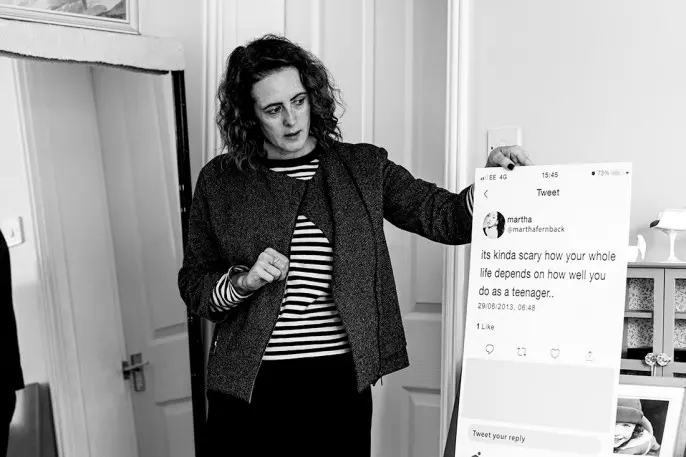
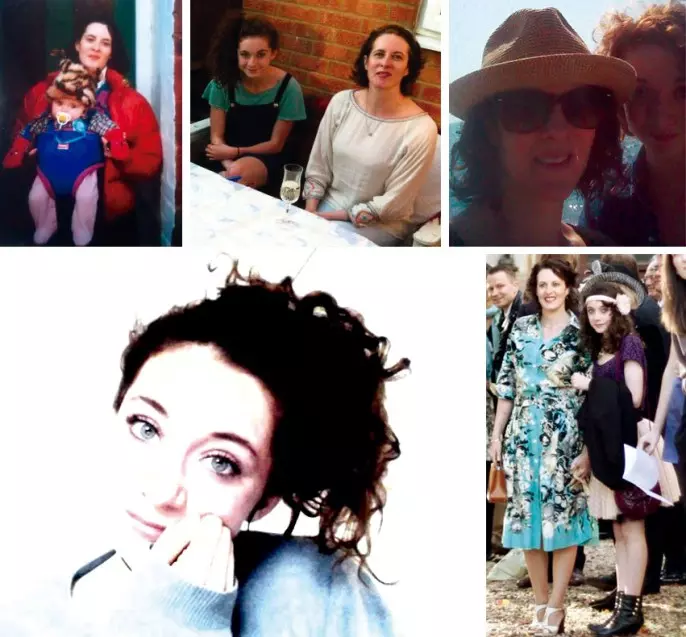
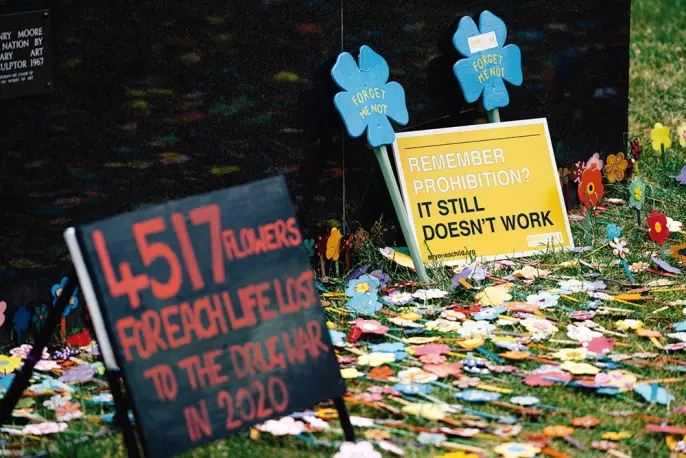
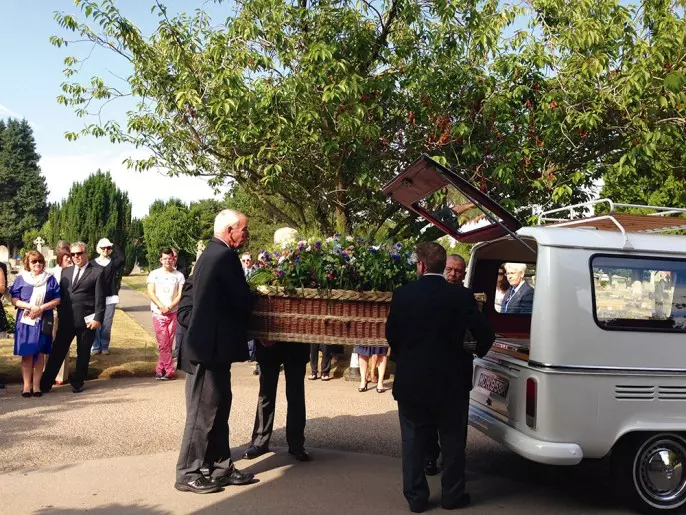

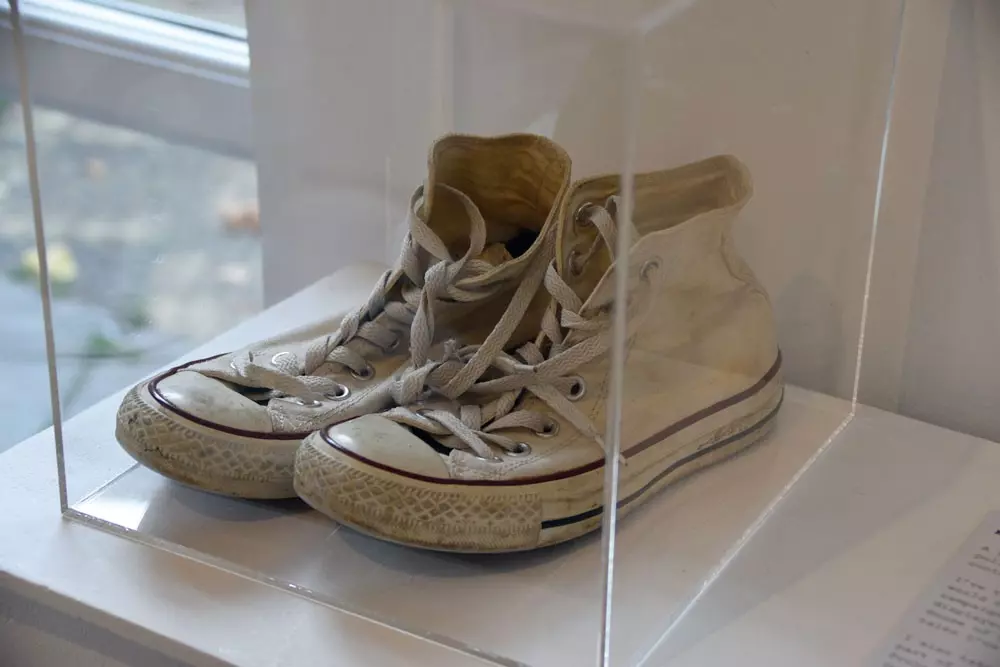
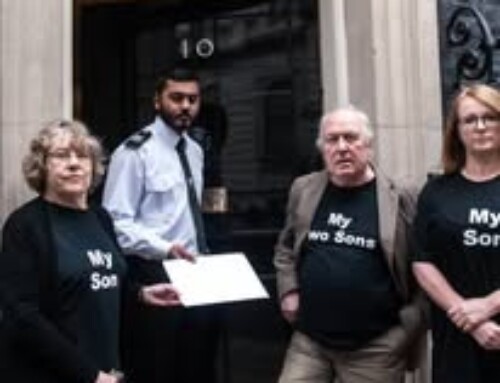
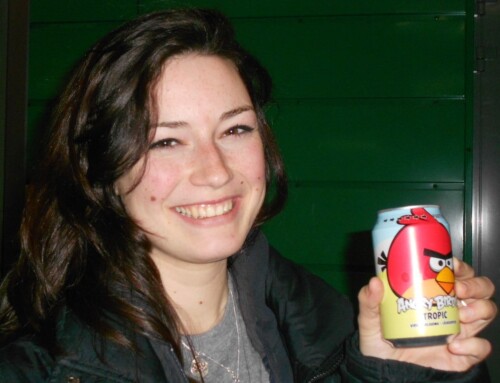
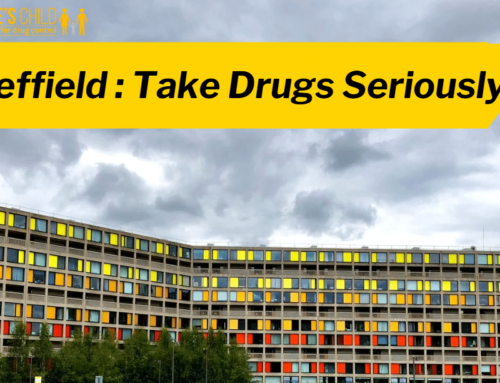
Leave A Comment